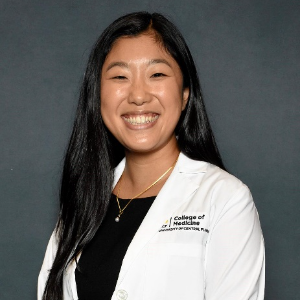Title : Investigation of OAS1, OAS3, and other differentially expressed genes in cervical cancer
Abstract:
Introduction: Cervical cancer (CC) is the fourth most common cancer among women, with approximately 604,000 new cases diagnosed annually worldwide. It is caused predominantly by high-risk strains of human papillomavirus (HPV), which inactivate tumor suppressor gene function. Advances in screening tools, such as the Papanicolaou (Pap) test, and prevention measures, including the 9-valent HPV vaccine, have significantly reduced mortality rates. However, the contribution of genetic factors to CC development remains underexplored. This study aims to identify and analyze unique gene profiles in patients with cervical squamous cell cancer (SCC) to enhance understanding of the molecular mechanisms and canonical pathways driving the disease and to identify potential biomarkers for targeted gene therapy.
Methods: The Search Tag Analyze Resource for NCBI’s Gene Expression Omnibus was used to identify cervical tissue samples from patients with cervical SCC and healthy controls, yielding 413 and 180 samples, respectively. Both HPV positive samples and HPV negative samples were included. Meta-analysis was conducted in STARGEO using a random effects model and the differential gene expression between case and control groups was reported. Pathway analysis was performed using Ingenuity Pathway Analysis (IPA) and restricted to genes with a statistically significant difference (p<0.05) and absolute experimental log ratio > 0.2. IPA’s Land Explorer function was used to generate survival data from all publicly available data for cervical SCC deposited into the TCGA OmicsLand.
Results: Of the 26,327 genes identified via STARGEO meta-analysis, 2314 molecules (1105 upregulated and 1209 downregulated) met the restrictions and were included for analysis. Top upregulated genes include CDKN2A - a known tumor suppressor, MMP12 - a contributor to extracellular matrix breakdown, and TM4SF19 - a gene involved in cellular proliferation. Notable gene candidates include OAS1 and OAS3, known to be involved in the antiviral and immune response and hypothesized to be a biomarker in many malignancies, which show significant upregulation in cervical SCC with experimental log ratios of 0.508 and 0.460, respectively. The top canonical pathways identified include cell cycle checkpoints (z-score 10.247), mitotic prometaphase (8.189), mitotic metaphase and anaphase (8.488), synthesis of DNA (7.141), and kinetochore metaphase signaling pathway (4.352). Top upstream regulators include beta-estradiol, dexamethasone, TGFB1, CEBPB, and CKN1A however, the top upstream regulators with downstream effects on OAS1 and OAS3 are dexamethasone, KRAS, TNF, TP53, and IFNG. Upregulation of SPP1, CXCL8, and downregulation of CCL15-CCL14 were associated with poorer prognosis in cervical SCC with p-values of 0.485, 0.0014, and 0.0825, respectively.
Conclusion: Increased expression of OAS1 and OAS3 in other female reproductive system cancers has been associated with poor prognosis. Observed increased expression in cervical SCC may implicate the OAS family of genes as prognostic or diagnostic biomarkers in cervical SCC. Additional potential prognostic markers include SPP1, CXCL8, and CCL15-CCL14 whose observed expression in this dataset may be associated with decreased survival. Identifying biomarkers associated with cervical SCC is a preliminary and necessary step to develop individualized treatment regimens and screening protocols.




